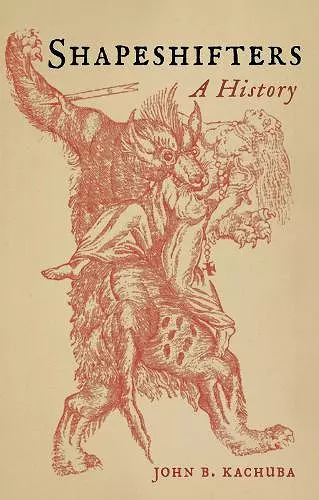Shapeshifters
A History
Format:Hardback
Publisher:Reaktion Books
Published:13th May '19
Currently unavailable, our supplier has not provided us a restock date

There is something about a shapeshifter – a person who can transform into an animal – that captures our imagination; that causes us to want to howl at the moon, or flit through the night like a bat. Werewolves, vampires, demons and other weird creatures appeal to our animal nature, our ‘dark side’, our desire to break free of the bonds of society and proper behaviour. Rituals in early cultures worldwide seemingly allowed shamans, sorcerers, witches and wizards to transform at will into animals and back again. Today, there are millions of people who believe that shapeshifters walk among us and may even be world leaders. Real or imaginary, shapeshifters lurk deep in our psyches and remain formidable cultural icons. The myths and magic surrounding shapeshifters is brought vividly to life in John Kachuba’s compelling and original cultural history. Featuring a fantastic and goulish array of examples from history, literature, film, TV and computer games, Shapeshifters explores our secret desire to become something other than human.
ISBN: 9781789140798
Dimensions: unknown
Weight: unknown
200 pages